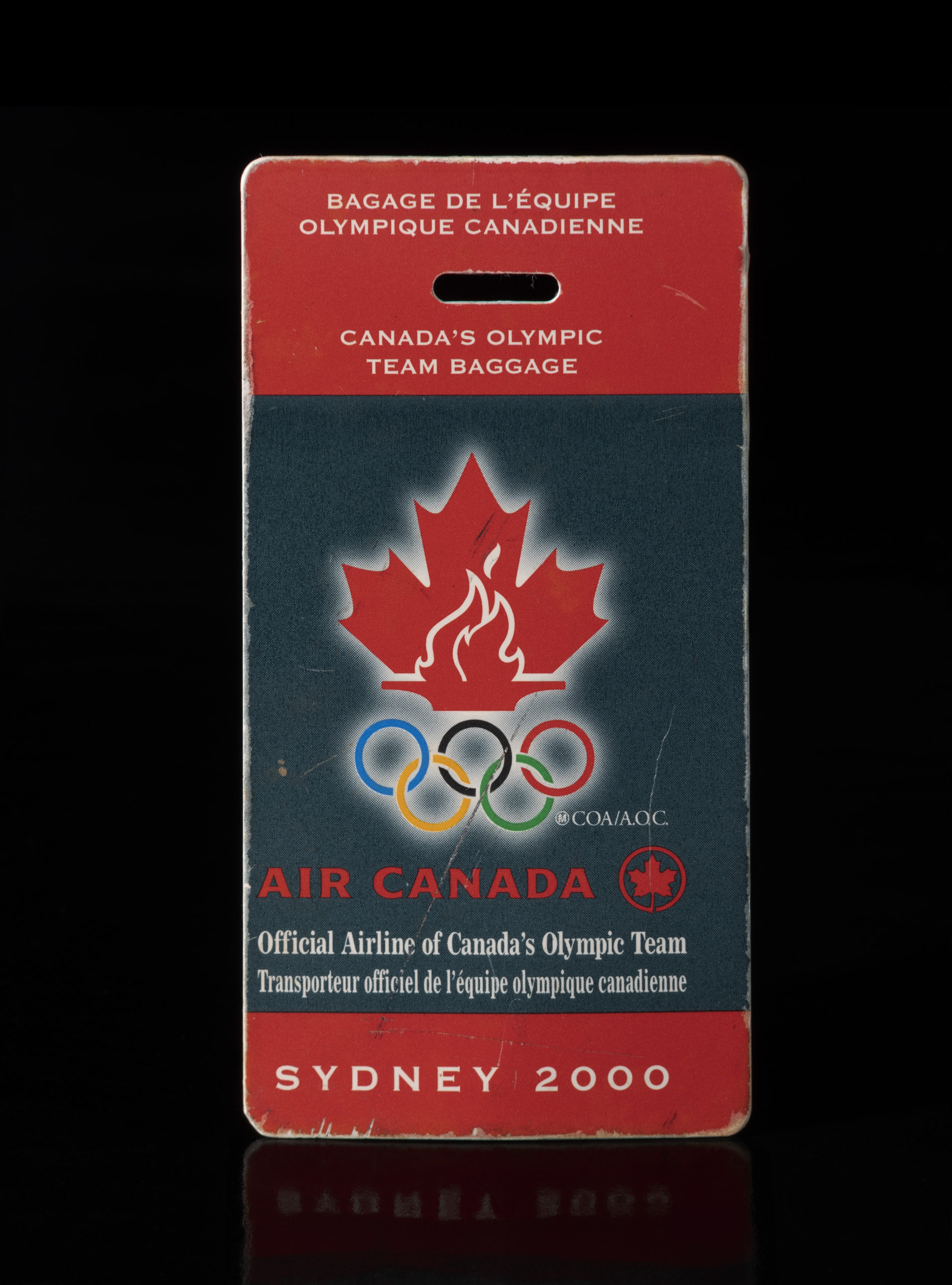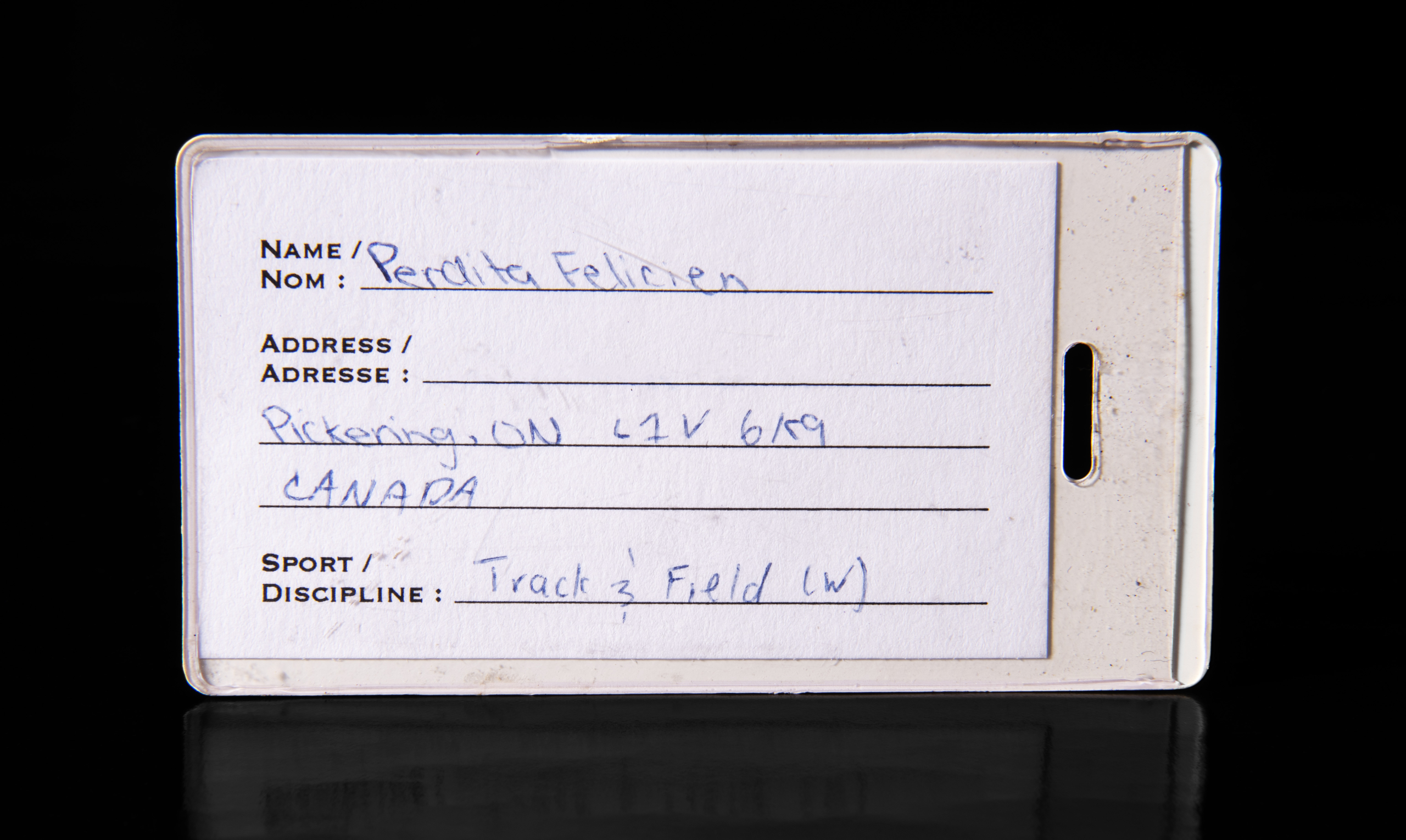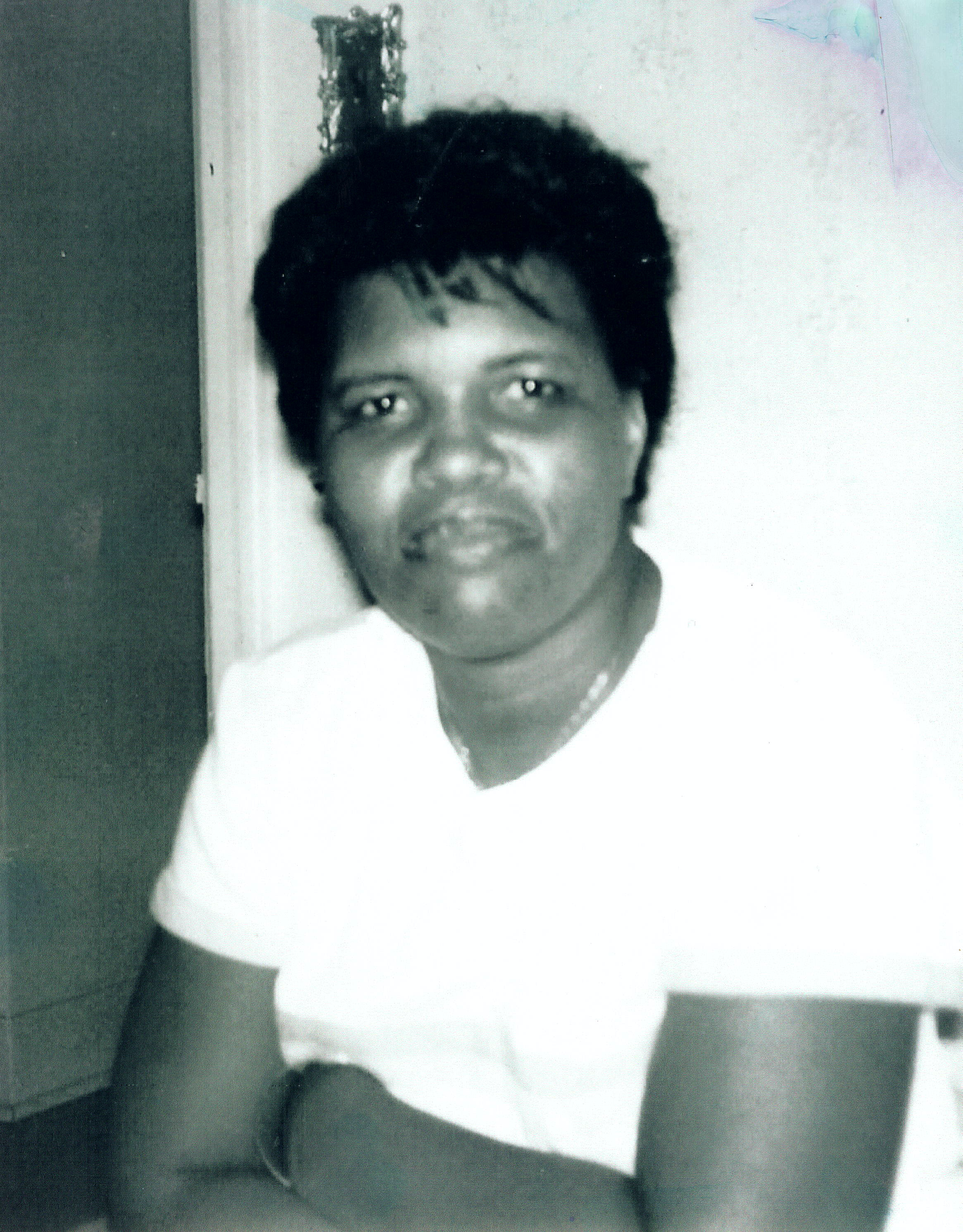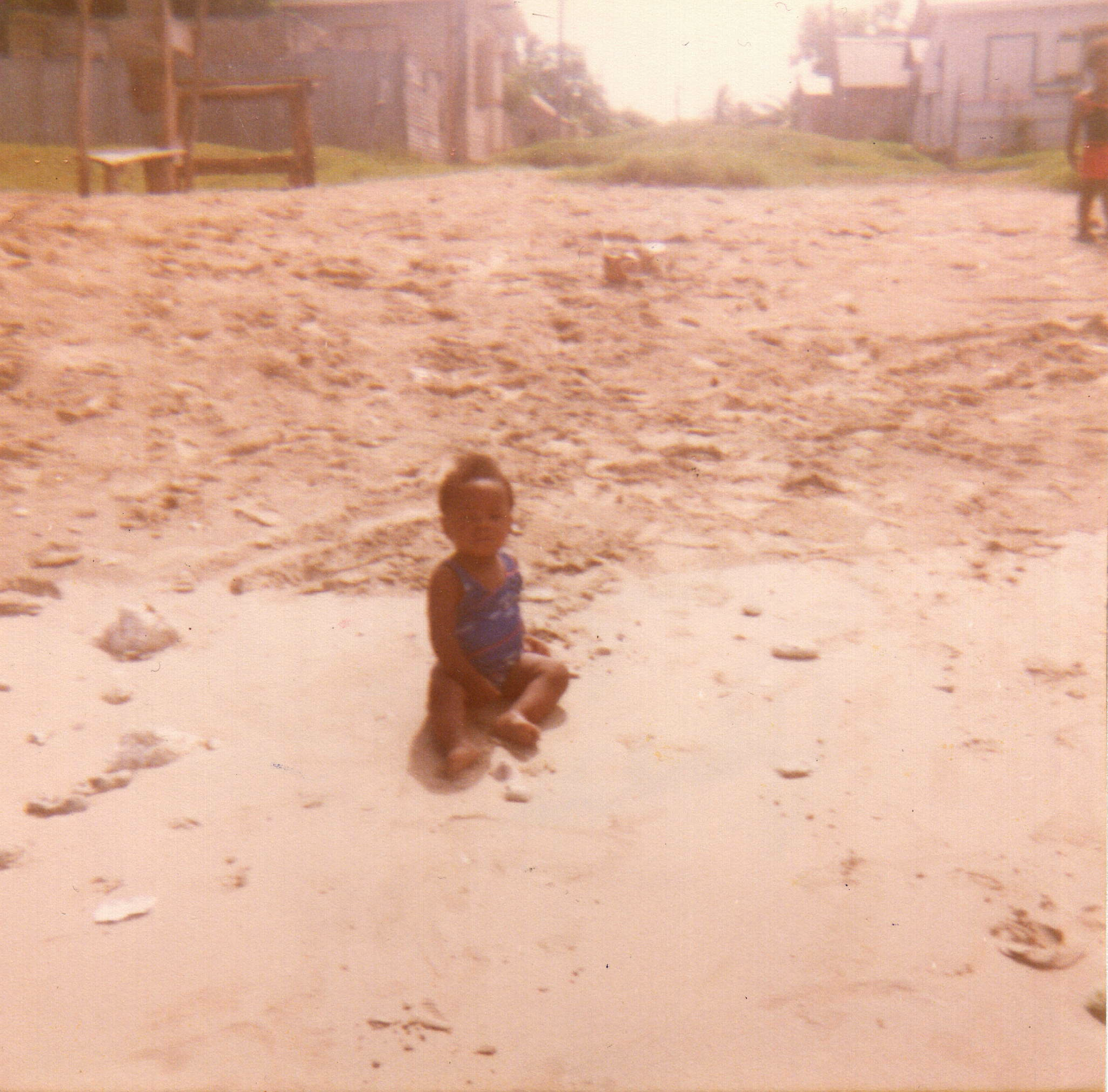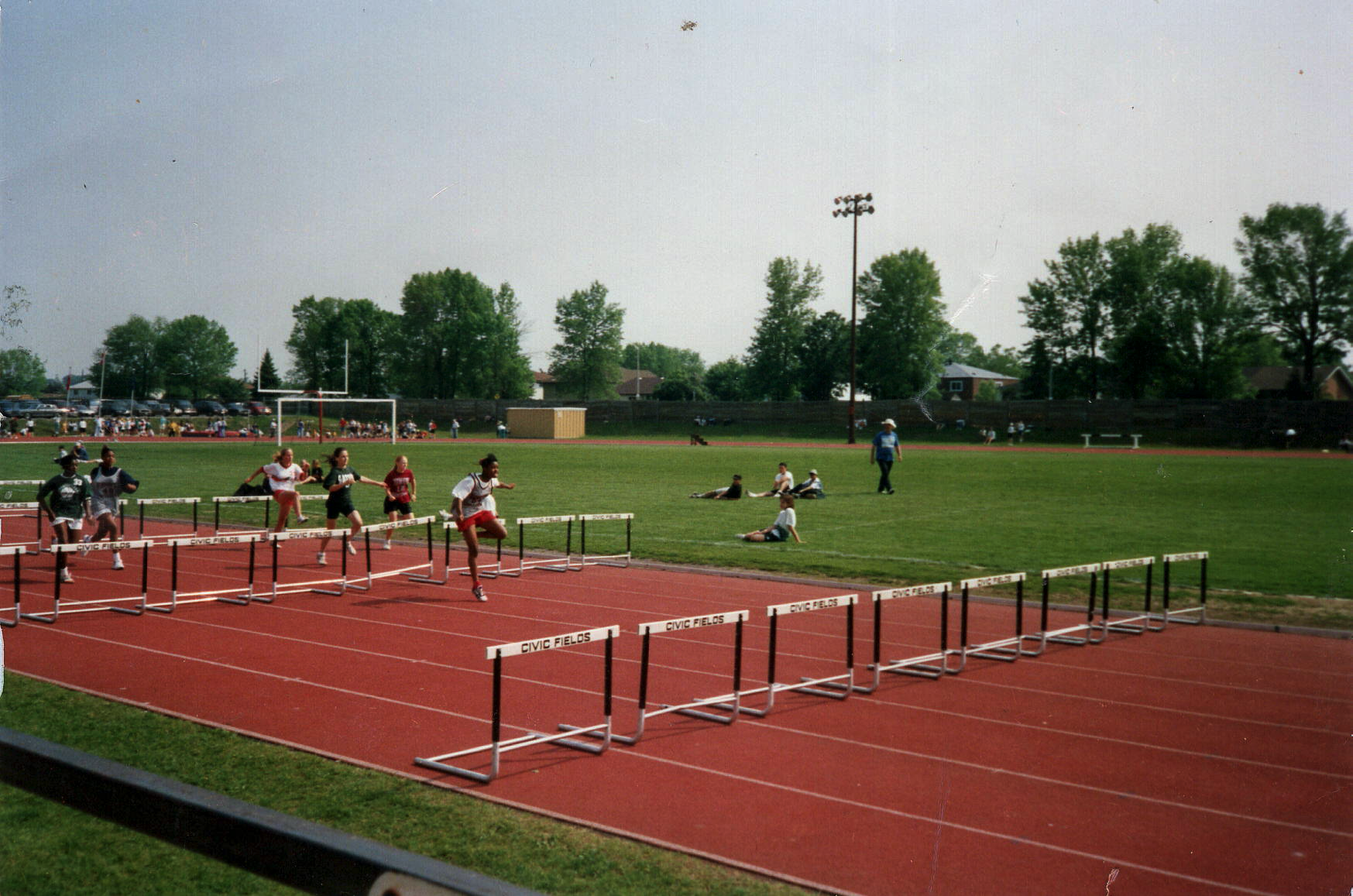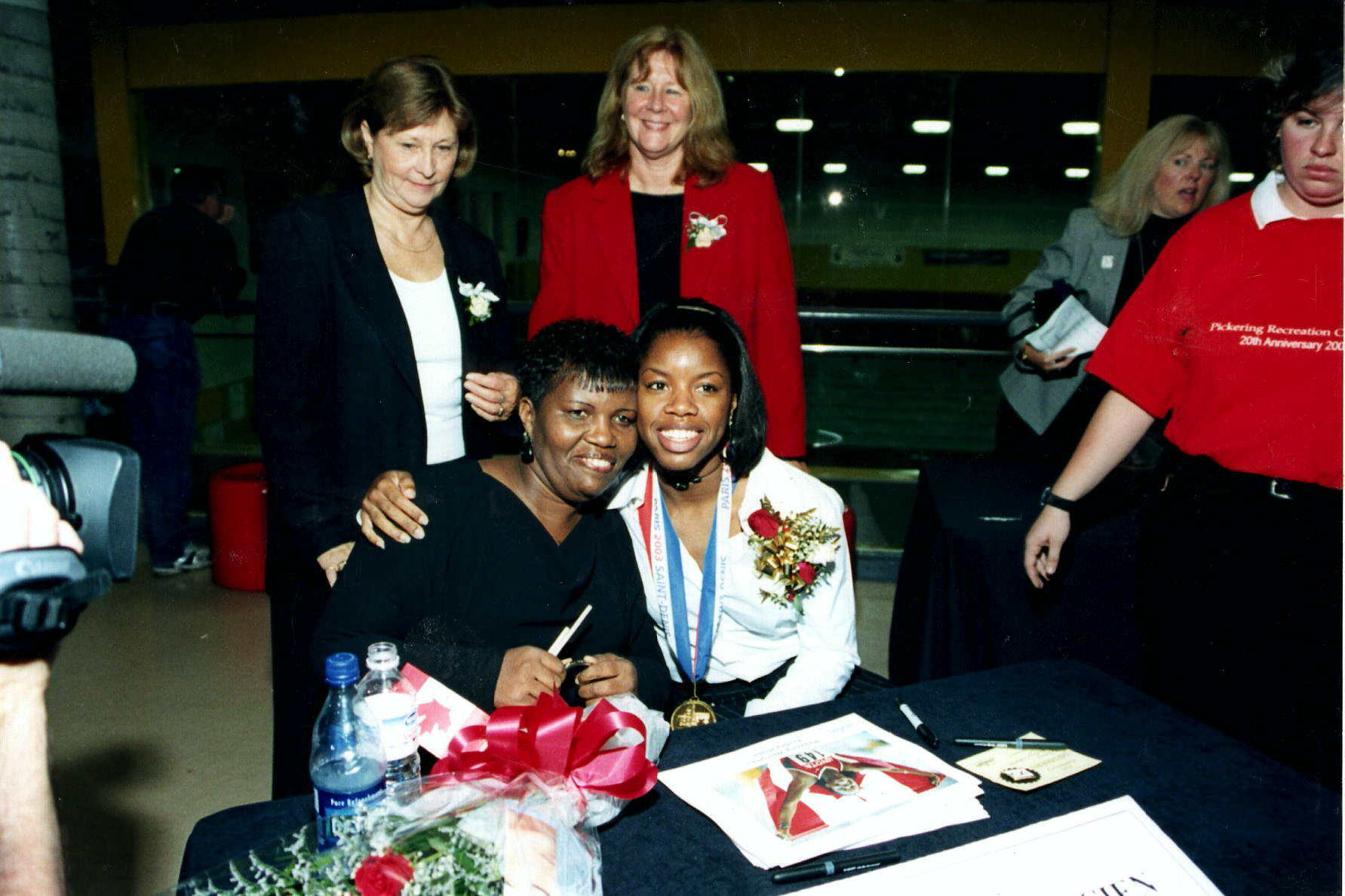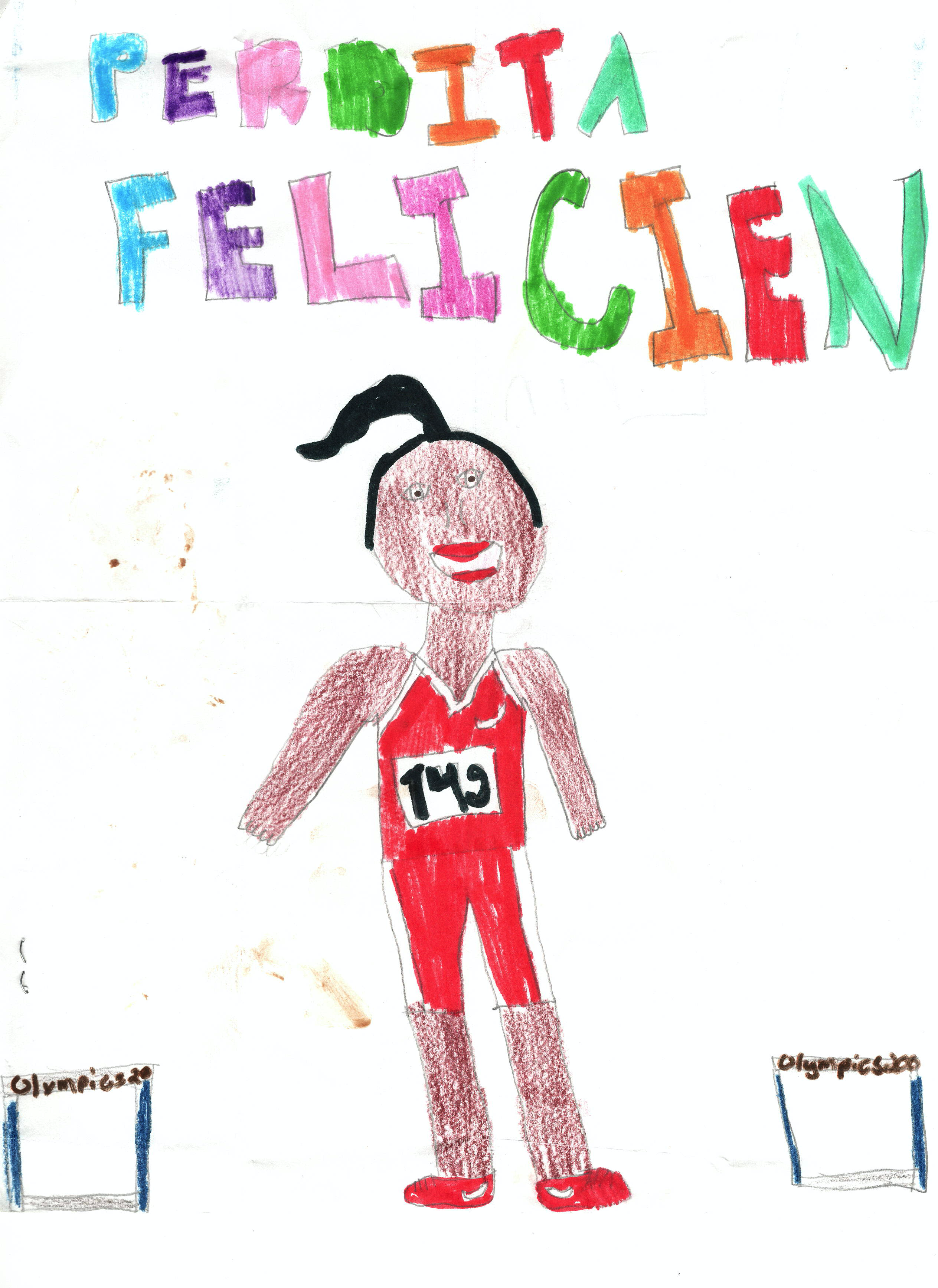Olympic Luggage Tag
Artifact
Image
Video
Audio
 Activities
Activities
LOOK
Look closely at this object. What do you think it represents? Read the Historical Context below to verify your answers.
THINK
Perdita Felicien credits her mother for her success. Take the historical perspective of Felicien. What about her mother’s experience do you think inspired her?
Details
 Materials
Materials - Paper
- Plastic
Historical Context
Choose one of the three levels below to match your needs.
- This luggage tag belonged to Canadian hurdler Perdita Felicien. She used it when travelling to and from the 2000 Summer Olympic Games in Sydney, Australia.
- A two-time Olympian, Felicien represented Canada in the 100-metre hurdles at the Games in Sydney (2000) and Athens (2004).
- Felicien credits her mother, Catherine Felicien Browne, for her success. Catherine immigrated to Canada from Saint Lucia in the 1970s to work as a live-in nanny for a White family. Her story — of working long hours, often for people who treated her poorly — was, sadly, common among domestic workers from the Caribbean.
- Felicien witnessed her mom’s persistence and determination. These traits drove Felicien to succeed for her mother; she believes the lessons Catherine taught her helped her become a champion.
Scroll through the media carousel above to see a picture of Catherine Felicien in the 1980s, Perdita Felicien in Saint Lucia in 1981, Felicien leading a hurdles race in 2003, Perdita Felicien and Catherine Felicien Browne at the City of Pickering’s celebration of Perdita’s World Championships win, and a child’s drawing of Felicien.
This luggage tag belonged to Canadian hurdler Perdita Felicien. She used it when travelling to and from the 2000 Summer Olympic Games in Sydney, Australia.
A two-time Olympian, Felicien represented Canada in the 100-metre hurdles at the Games in Sydney (2000) and Athens (2004). She gained national and international recognition when she won gold at the 2003 IAAF World Championships, becoming the first and only Canadian female athlete to win a gold medal at that event. Today, Felicien is a TV host, broadcaster and public speaker.
Felicien credits her mother, Catherine Felicien Browne, for her success. Catherine immigrated to Canada from Saint Lucia in the 1970s to work as a live-in nanny for a White family. Her story — of working long hours, often for people who treated her poorly — was, sadly, common among domestic workers from the Caribbean.
Over the years, Felicien witnessed her mom’s persistence and determination to keep their family together. These traits drove Felicien to succeed for her mother; she believes the lessons Catherine taught her helped her become a champion.
This luggage tag belonged to Canadian hurdler Perdita Felicien. She used it when travelling to and from the 2000 Summer Olympic Games in Sydney, Australia. All Canadian Olympic athletes received individual tags from their sponsors.
Born in Pickering, Ontario, Felicien is a first-generation Canadian; her mother immigrated to Canada from the Caribbean island of Saint Lucia in the 1970s. A two-time Olympian, Felicien represented Canada in the 100-metre hurdles at the Games in Sydney (2000) and Athens (2004).
She gained national and international recognition when she became a 10-time national champion in the 100-metre hurdles, and when she won gold at the 2003 IAAF World Championships, becoming the first and only Canadian female athlete to win a gold medal at that event.
In Eugene, Oregon, in June 2004, Felicien set the Canadian record for the 100-metre hurdles event, completing it in 12.46 seconds. A favourite to win gold in the event at the 2004 Summer Olympics in Athens, Felicien was disqualified after she clipped her second hurdle and fell into the lane of another runner.
Although this was the most disappointing race of her career, Felicien has never avoided discussing it. She believes that it’s important to talk about both the highs and the lows of being an athlete. Today, Felicien is a TV host, broadcaster and public speaker.
Felicien credits her mother for her success. In Felicien’s memoir My Mother’s Daughter, published in 2021, she describes how Catherine Felicien Browne came to Canada to work as a live-in nanny for a White family.
Catherine’s story — of working long hours, often for people who treated her poorly — was, sadly, common among domestic workers from the Caribbean. Canada’s early domestic-worker program recruited single, child-free women, and was not provided as a path to immigration. But Catherine was intent on citizenship.
After almost a decade, during which she married a Canadian and had two children, Catherine finally became a citizen. Over the years, Felicien witnessed her mom’s persistence and determination to keep their family together. These traits drove Felicien to succeed for her mother; she believes that the lessons Catherine taught her helped her become a champion.
- This luggage tag belonged to Canadian hurdler Perdita Felicien. She used it when travelling to and from the 2000 Summer Olympic Games in Sydney, Australia.
- A two-time Olympian, Felicien represented Canada in the 100-metre hurdles at the Games in Sydney (2000) and Athens (2004).
- Felicien credits her mother, Catherine Felicien Browne, for her success. Catherine immigrated to Canada from Saint Lucia in the 1970s to work as a live-in nanny for a White family. Her story — of working long hours, often for people who treated her poorly — was, sadly, common among domestic workers from the Caribbean.
- Felicien witnessed her mom’s persistence and determination. These traits drove Felicien to succeed for her mother; she believes the lessons Catherine taught her helped her become a champion.
Scroll through the media carousel above to see a picture of Catherine Felicien in the 1980s, Perdita Felicien in Saint Lucia in 1981, Felicien leading a hurdles race in 2003, Perdita Felicien and Catherine Felicien Browne at the City of Pickering’s celebration of Perdita’s World Championships win, and a child’s drawing of Felicien.
This luggage tag belonged to Canadian hurdler Perdita Felicien. She used it when travelling to and from the 2000 Summer Olympic Games in Sydney, Australia.
A two-time Olympian, Felicien represented Canada in the 100-metre hurdles at the Games in Sydney (2000) and Athens (2004). She gained national and international recognition when she won gold at the 2003 IAAF World Championships, becoming the first and only Canadian female athlete to win a gold medal at that event. Today, Felicien is a TV host, broadcaster and public speaker.
Felicien credits her mother, Catherine Felicien Browne, for her success. Catherine immigrated to Canada from Saint Lucia in the 1970s to work as a live-in nanny for a White family. Her story — of working long hours, often for people who treated her poorly — was, sadly, common among domestic workers from the Caribbean.
Over the years, Felicien witnessed her mom’s persistence and determination to keep their family together. These traits drove Felicien to succeed for her mother; she believes the lessons Catherine taught her helped her become a champion.
This luggage tag belonged to Canadian hurdler Perdita Felicien. She used it when travelling to and from the 2000 Summer Olympic Games in Sydney, Australia. All Canadian Olympic athletes received individual tags from their sponsors.
Born in Pickering, Ontario, Felicien is a first-generation Canadian; her mother immigrated to Canada from the Caribbean island of Saint Lucia in the 1970s. A two-time Olympian, Felicien represented Canada in the 100-metre hurdles at the Games in Sydney (2000) and Athens (2004).
She gained national and international recognition when she became a 10-time national champion in the 100-metre hurdles, and when she won gold at the 2003 IAAF World Championships, becoming the first and only Canadian female athlete to win a gold medal at that event.
In Eugene, Oregon, in June 2004, Felicien set the Canadian record for the 100-metre hurdles event, completing it in 12.46 seconds. A favourite to win gold in the event at the 2004 Summer Olympics in Athens, Felicien was disqualified after she clipped her second hurdle and fell into the lane of another runner.
Although this was the most disappointing race of her career, Felicien has never avoided discussing it. She believes that it’s important to talk about both the highs and the lows of being an athlete. Today, Felicien is a TV host, broadcaster and public speaker.
Felicien credits her mother for her success. In Felicien’s memoir My Mother’s Daughter, published in 2021, she describes how Catherine Felicien Browne came to Canada to work as a live-in nanny for a White family.
Catherine’s story — of working long hours, often for people who treated her poorly — was, sadly, common among domestic workers from the Caribbean. Canada’s early domestic-worker program recruited single, child-free women, and was not provided as a path to immigration. But Catherine was intent on citizenship.
After almost a decade, during which she married a Canadian and had two children, Catherine finally became a citizen. Over the years, Felicien witnessed her mom’s persistence and determination to keep their family together. These traits drove Felicien to succeed for her mother; she believes that the lessons Catherine taught her helped her become a champion.
Summary
- This luggage tag belonged to Canadian hurdler Perdita Felicien. She used it when travelling to and from the 2000 Summer Olympic Games in Sydney, Australia.
- A two-time Olympian, Felicien represented Canada in the 100-metre hurdles at the Games in Sydney (2000) and Athens (2004).
- Felicien credits her mother, Catherine Felicien Browne, for her success. Catherine immigrated to Canada from Saint Lucia in the 1970s to work as a live-in nanny for a White family. Her story — of working long hours, often for people who treated her poorly — was, sadly, common among domestic workers from the Caribbean.
- Felicien witnessed her mom’s persistence and determination. These traits drove Felicien to succeed for her mother; she believes the lessons Catherine taught her helped her become a champion.
Scroll through the media carousel above to see a picture of Catherine Felicien in the 1980s, Perdita Felicien in Saint Lucia in 1981, Felicien leading a hurdles race in 2003, Perdita Felicien and Catherine Felicien Browne at the City of Pickering’s celebration of Perdita’s World Championships win, and a child’s drawing of Felicien.
Essential
This luggage tag belonged to Canadian hurdler Perdita Felicien. She used it when travelling to and from the 2000 Summer Olympic Games in Sydney, Australia.
A two-time Olympian, Felicien represented Canada in the 100-metre hurdles at the Games in Sydney (2000) and Athens (2004). She gained national and international recognition when she won gold at the 2003 IAAF World Championships, becoming the first and only Canadian female athlete to win a gold medal at that event. Today, Felicien is a TV host, broadcaster and public speaker.
Felicien credits her mother, Catherine Felicien Browne, for her success. Catherine immigrated to Canada from Saint Lucia in the 1970s to work as a live-in nanny for a White family. Her story — of working long hours, often for people who treated her poorly — was, sadly, common among domestic workers from the Caribbean.
Over the years, Felicien witnessed her mom’s persistence and determination to keep their family together. These traits drove Felicien to succeed for her mother; she believes the lessons Catherine taught her helped her become a champion.
In-Depth
This luggage tag belonged to Canadian hurdler Perdita Felicien. She used it when travelling to and from the 2000 Summer Olympic Games in Sydney, Australia. All Canadian Olympic athletes received individual tags from their sponsors.
Born in Pickering, Ontario, Felicien is a first-generation Canadian; her mother immigrated to Canada from the Caribbean island of Saint Lucia in the 1970s. A two-time Olympian, Felicien represented Canada in the 100-metre hurdles at the Games in Sydney (2000) and Athens (2004).
She gained national and international recognition when she became a 10-time national champion in the 100-metre hurdles, and when she won gold at the 2003 IAAF World Championships, becoming the first and only Canadian female athlete to win a gold medal at that event.
In Eugene, Oregon, in June 2004, Felicien set the Canadian record for the 100-metre hurdles event, completing it in 12.46 seconds. A favourite to win gold in the event at the 2004 Summer Olympics in Athens, Felicien was disqualified after she clipped her second hurdle and fell into the lane of another runner.
Although this was the most disappointing race of her career, Felicien has never avoided discussing it. She believes that it’s important to talk about both the highs and the lows of being an athlete. Today, Felicien is a TV host, broadcaster and public speaker.
Felicien credits her mother for her success. In Felicien’s memoir My Mother’s Daughter, published in 2021, she describes how Catherine Felicien Browne came to Canada to work as a live-in nanny for a White family.
Catherine’s story — of working long hours, often for people who treated her poorly — was, sadly, common among domestic workers from the Caribbean. Canada’s early domestic-worker program recruited single, child-free women, and was not provided as a path to immigration. But Catherine was intent on citizenship.
After almost a decade, during which she married a Canadian and had two children, Catherine finally became a citizen. Over the years, Felicien witnessed her mom’s persistence and determination to keep their family together. These traits drove Felicien to succeed for her mother; she believes that the lessons Catherine taught her helped her become a champion.
